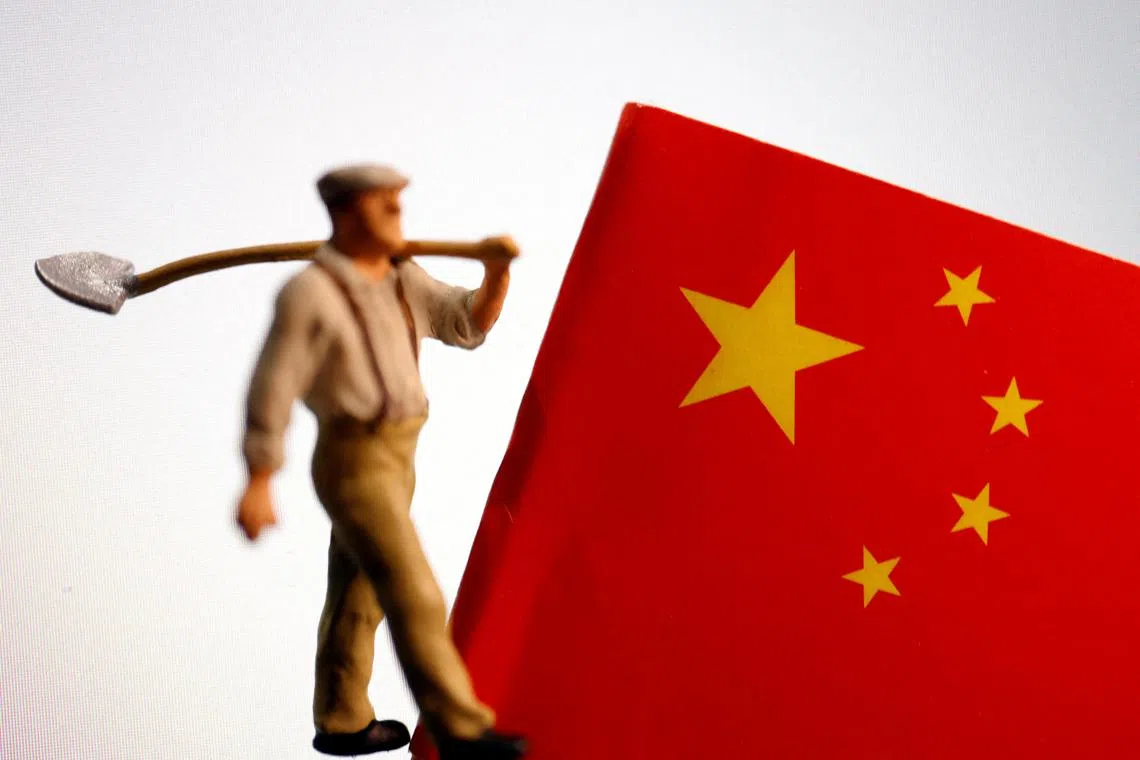China’s zinc troubles deepen as sub-zero fees crush smelters
Sign up now: Get ST's newsletters delivered to your inbox

Smelters in China have already reduced production in 2024 to cope with mounting losses.
PHOTO: REUTERS
BEIJING – China’s zinc smelters are facing pressure to make steeper output cuts as they struggle with weak demand and processing fees that have plunged even deeper below zero.
Smelters in the world’s top zinc refiner have already reduced production in 2024 to cope with mounting losses. But that has so far failed to arrest a sharp decline in spot treatment fees, which are now at minus US$35 (S$46) for each tonne of imported concentrate.
Struggling smelters will have to extend output cuts as ore supplies are particularly tight, said Ms Dina Yu, an analyst at researcher CRU Group. “It’s hard to quantify the cuts needed, but smelters are for sure going to suffer through the winter.”
Treatment charges are the amount that smelters get for turning raw material into metal. Just as in the copper market in the past year, zinc fees have plunged as too much capacity chases constrained global supply. The crisis in China’s steel sector – a major buyer of zinc – has added to the bleak picture for zinc.
China produces about half the world’s refined zinc, used to galvanise steel, and smelters representing about 70 per cent of the country’s capacity pledged in August to reduce the intake of concentrate in a bid to ease the profit squeeze. Production has retreated since hitting a record in December, though it was still higher in the first seven months compared with a year earlier.
Spot fees on imports are a rough guide to profitability for zinc smelters, who also get supplies through term contracts, or from domestic mines. Those charges have also fallen, though not to the same extent as the spot market.
The ore shortage may ease “a little bit” in 2025, said CRU’s Ms Yu. Zinc prices may fluctuate as supply disruption and weak demand cap the upside and downside, she said.
Zinc on the London Metal Exchange is still up about 7 per cent in 2024, after peaking in May before falling with other metals on a dimmer demand outlook in China. Prices were down 0.3 per cent at US$2,833 a tonne as of 11.11am in Singapore on Sept 3. BLOOMBERG


